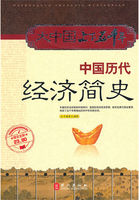Smith stood just at the beginning of a great industrial revolution .The world of production and commerce in which he livedwas still,as Cliffe Leslie has said,a "very early"and comparatively narrow one;"the only steam-engine he refers to isNewcomen's,"and the cotton trade is mentioned by him only once,and that incidentally."Between the years 1760and1770,"says Mr.Marshall,"Roebuck began to smelt iron by coal,Brindley connected the rising seats of manufactures withthe sea by canals,Wedgwood discovered the art of making earthenware cheaply and well,Hargreaves invented thespinning-jenny,Arkwright utilised Wyatt's and High's inventions for spinning by rollers and applied water-power to movethem,and Watt invented the condensing steam-engine.Crompton's mule and Cartwright's power-loom came shortly after."Out of this rapid evolution followed a vast expansion of industry,but also many deplorable results,which,had Smith beenable to foresee them,might have made him a less enthusiastic believer in the benefits to be wrought by the mere liberation ofeffort,and a less vehement denouncer of old institutions which in their day had given a partial protection to labour.
Alongside of these evils of the new industrial system,Socialism appeared as the alike inevitable and indispensable expressionof the protest of the working classes and the aspiration after a better order of things;and what we now call "the socialquestion,"that inexorable problem of modern life,rose into the place which it has ever since maintained.This question wasfirst effectually brought before the English mind by Thomas Robert Malthus (1766-1834),not,however,under the impulseof revolutionary sympathies,but in the interests of a conservative policy.
The first edition of the work which achieved this result appeared anonymously in 1798under the title --An Essay on thePrinciple of Population,as it affects the future improvement of Society,with remarks on the speculations of Mr Godwin,M.Condorcet,and other writers .This book arose out of certain private controversies of its author with his father,DanielMalthus,who had been a friend of Rousseau,and was an ardent believer in the doctrine of human progress as preached byCondorcet and other French thinkers and by their English disciples.The most distinguished of the latter was WilliamGodwin,whose Enquiry concerning Political Justice had been published in 1793.The views put forward in that work hadbeen restated by its author in the Enquirer (1797),and it was on the essay in this volume entitled "Avarice and Profusion"that the discussion between the father and the son arose,"the general question of the future improvement of society"beingthus raised between them --the elder Malthus defending the doctrines of Godwin,and the younger assailing them.The latter"sat down with an intention of merely stating his thoughts on paper in a clearer manner than he thought he could do inconversation,"and the Essay on population was the result.
The social scheme of Godwin was founded on the idea that the evils of society arise from the vices of human institutions.
There is more than enough of wealth available for all,but it is not equally shared:one has too much,another has little ornothing.Let this wealth,as well as the labour of producing it,be equally divided;then every one will by moderate exertionobtain sufficient for plain living;there will be abundant leisure,which will be spent in intellectual and moralself-improvement;reason will determine human actions;government and every kind of force will be unnecessary;and,intime,by the peaceful influence of truth,perfection and happiness will be established on earth.To these glowing anticipationsMalthus opposes the facts of the necessity of food and the tendency of mankind to increase up to the limit of the availablesupply of it.In a state of universal physical well-being,this tendency,which in real life is held in check by the difficulty ofprocuring a subsistence,would operate without restraint.Scarcity would follow the increase of numbers;the leisure wouldsoon cease to exist;the old struggle for life would recommence;and inequality would reign once more.If Godwin's idealsystem,therefore,could be established,the single force ot the principle of population,Malthus maintained,would suffice tobreak it down.
It will be seen that the essay was written with a polemical object;it was an occasional pamphlet directed against the utopiasof the day,not at all a systematic treatise on population suggested by a purely scientific interest.As a polemic,it wasdecidedly successful;it was no difficult task to dispose of the scheme of equality propounded by Godwin.Already,in 1761,Dr.Robert Wallace had published a work (which was amongst those used by Malthus in the composition of his essay)entitled Various Prospects of Mankind,Nature,and Providence ,in which,after speaking of a community of goods as aremedy for the ills of society,he confessed that he saw one fatal objection to such a social organization,namely,"theexcessive population that would ensue."With Condorcet's extravagances,too,Malthus easily dealt.That eminent man,amidst the tempest of the French Revolution,had written,whilst in hiding from his enemies,his Esquisse d'un tableauhistorique de l'esprit humain .The general conception of this book makes its appearance an epoch in tht history of the rise ofsociology.In it,if we except some partial sketches by Turgot,(36)is for the first time explained the idea of a theory of socialdynamics founded on history;and its author is on this ground recognized by Comte as his principal immediate predecessor.












